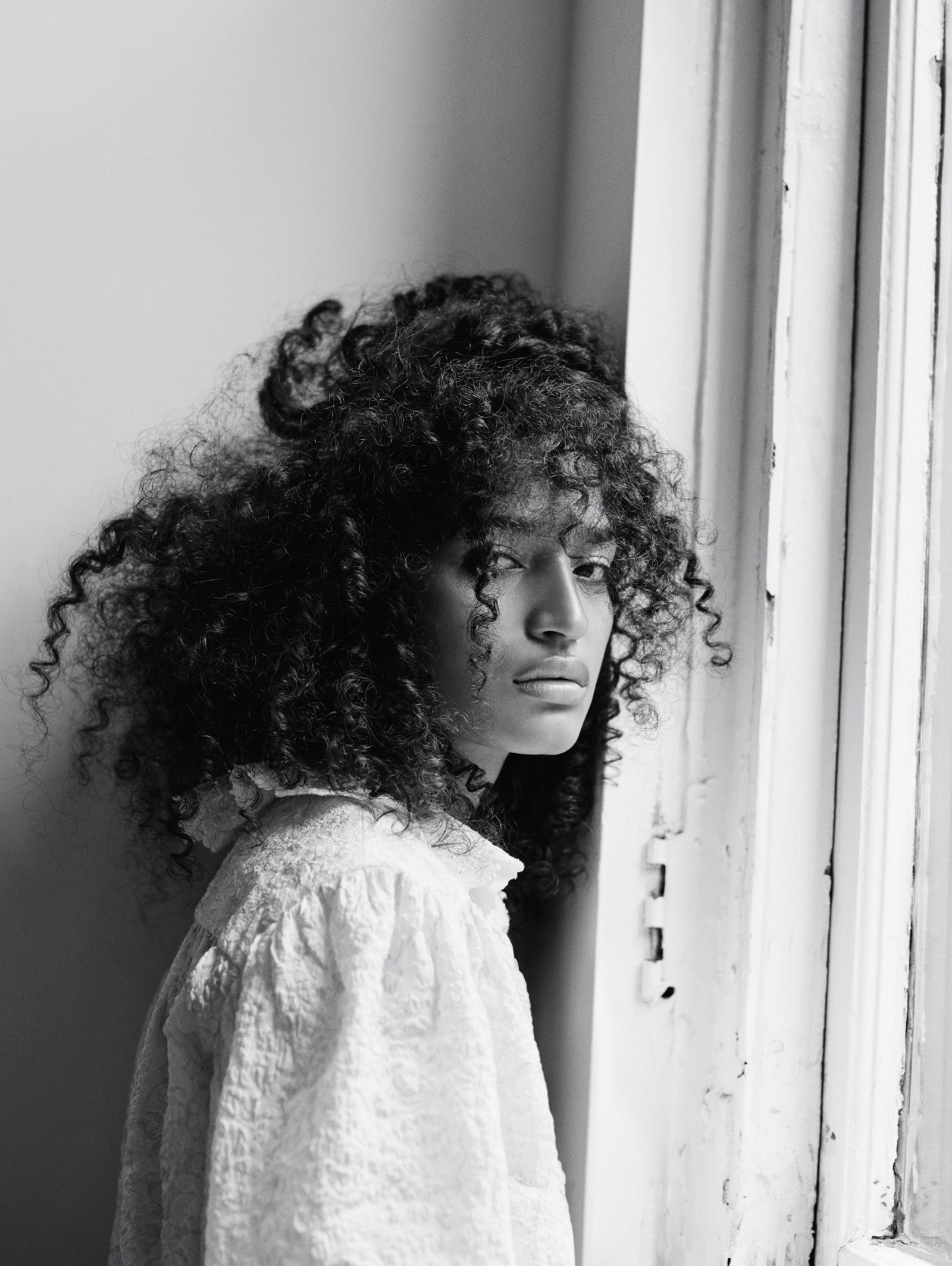Here are the facts: Indya Moore is a celebrity. Indya Moore is a lead in one of the shows fundamentally defining a modern television renaissance. Indya Moore is a model signed to IMG, and Indya Moore is a face of Louis Vuitton, appearing in campaign imagery and sitting front row at the Paris collections. Indya Moore is also, as they put it, “a black trans person from the Bronx who comes from poverty”, who is non-binary and uses ‘they’ pronouns. It might be tempting to ascribe an American Dream mythology to their meteoric rise, but the magnetic 24-year-old would probably tell you that such a narrative is an invention of the imperialist, white supremacist, capitalist patriarchy, a fiction designed to prove that people can work hard to overcome entrenched structural inequalities, and give those more privileged a get-out clause to ignore their struggles.
Deep-thinking and deeply political, Moore has had a life that, in many ways, isn’t dissimilar from a character’s on Pose, the Golden Globe-nominated TV series set in the New York ballroom scene that shot them into the spotlight after its release in the US last summer. After growing up experiencing extreme gender dysphoria (“I was always just very upset because I felt like there was nothing in this society that made me feel like it was OK for me to be me,” Moore says), transphobia led to a family rift, and Moore left home at 14. Years of moving frequently between foster and group homes followed (it was a foster parent, a trans woman, who first provided them with hormones), with Moore eventually living in all five boroughs of New York City. Modelling, joining the legendary ballroom house of Xtravaganza – first immortalised in Jennie Livingston’s seminal 1990 documentary Paris Is Burning, which charted the black and Latino ballroom subculture of New York – and a role in the indie film Saturday Church followed. A momentous audition led to them scoring the role of Pose’s Angel, a streetwise sex worker with romantic, idealistic tendencies, all Afro, fluffy coats, platform boots, big dreams.
“Pose is revolutionary because it’s giving people an insight [into the] experiences of people they’ve never met before, right on their living-room screens” – Indya Moore
Pose – co-created by Ryan Murphy, the mega showrunner known for a long list of success stories including Nip/Tuck, Glee and American Horror Story – makes for revolutionary, agenda-setting television in more ways than one. Firstly, with a primary cast made almost entirely of transgender people, it’s a powerful rebuttal to the tired, often-touted idea that there simply aren’t enough transgender actors who could excel in roles as members of their own community (see castings such as Eddie Redmayne in 2015’s The Danish Girl, or the role of a transgender man in the crime biopic Rub & Tug that Scarlett Johansson took – and subsequently stepped down from playing – in 2018). Then there’s the fact that the show’s cast and team includes 140 LGBTQ+ people, such as Janet Mock, who became the first transgender woman of colour to write and direct a television episode. And of course, there’s the story it tells.
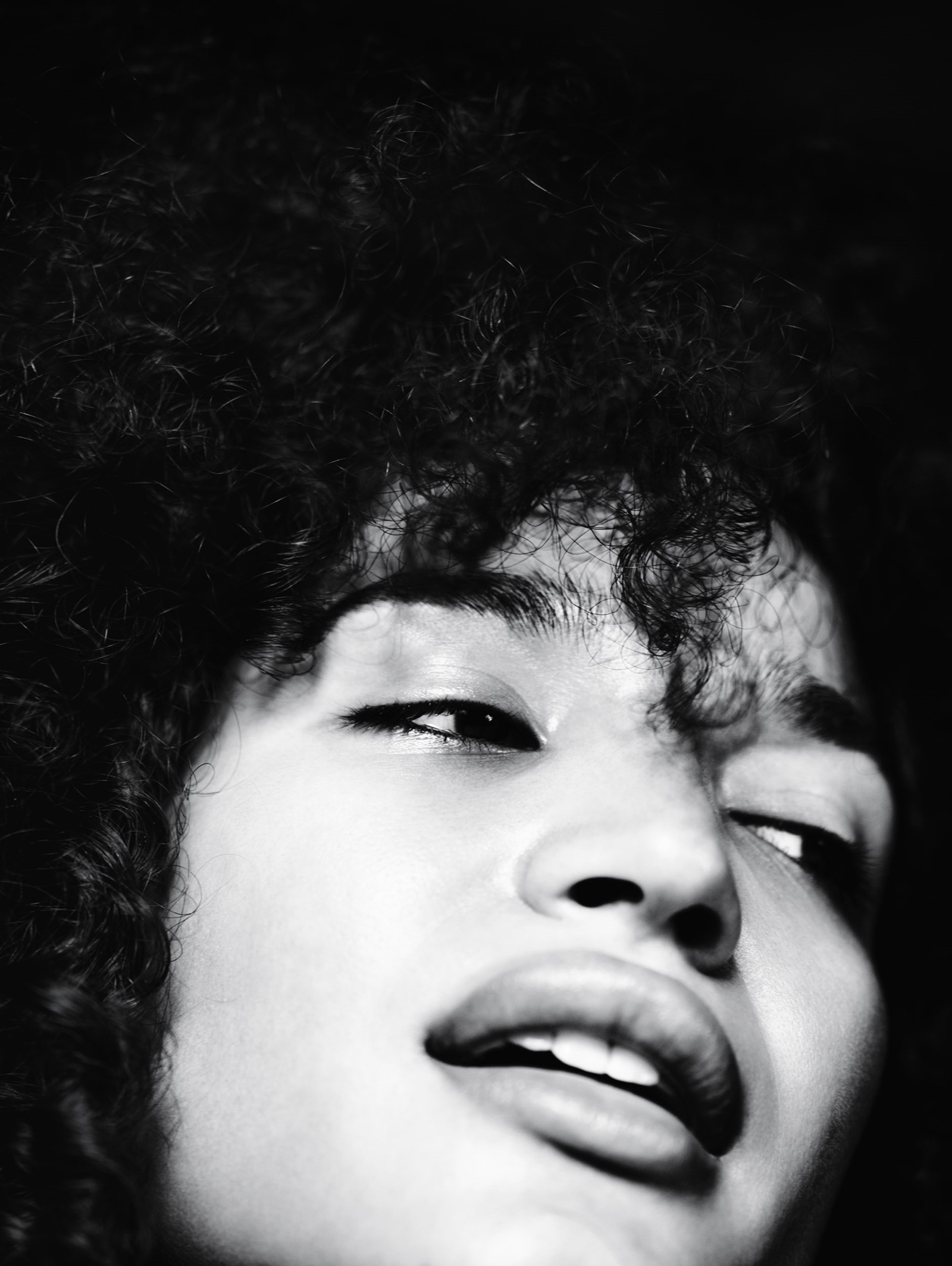
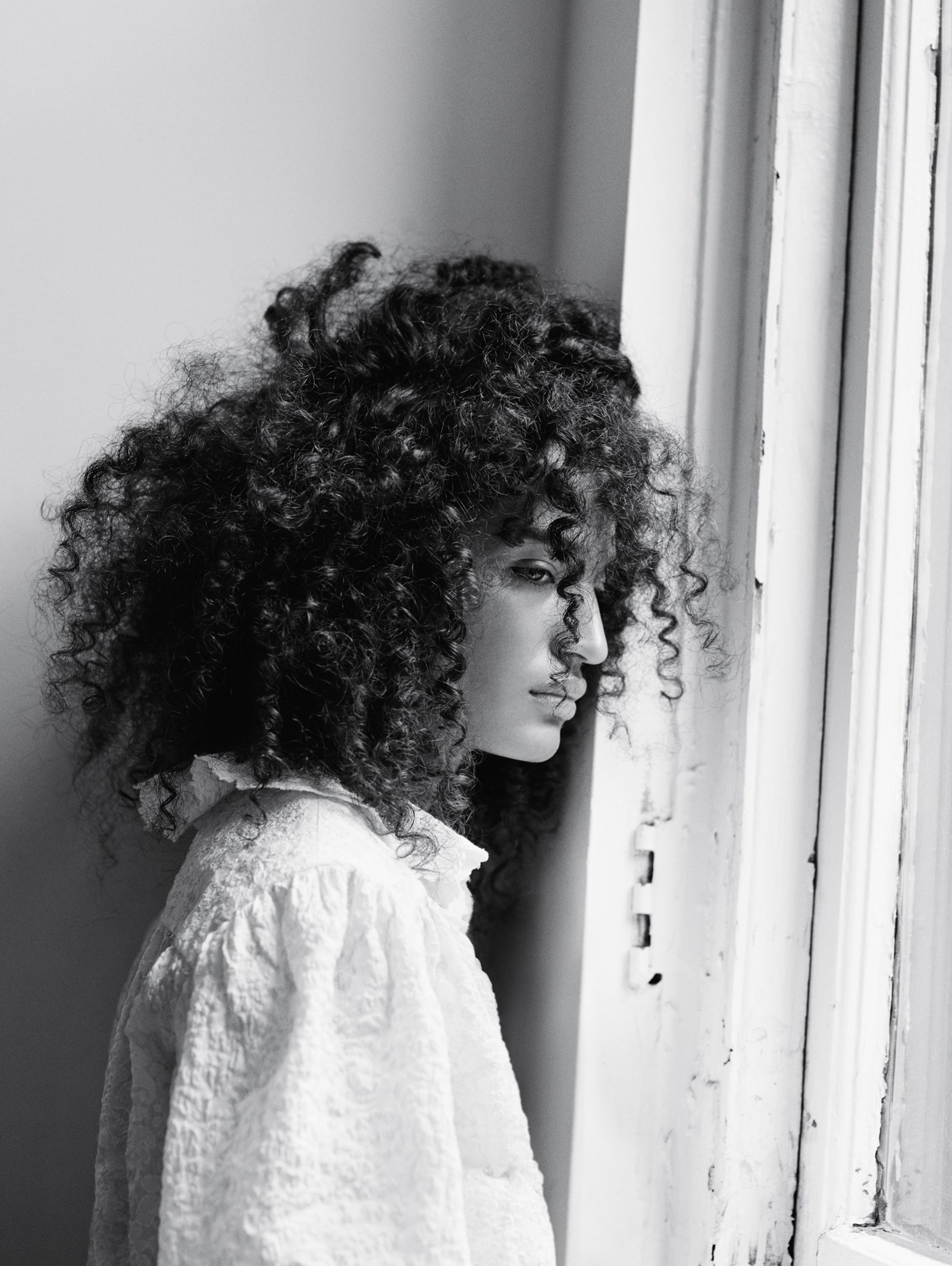
Set in New York in the late 1980s, Pose is centred around a newly formed ballroom house called the House of Evangelista (yes, after Linda). It’s founded by Blanca, played by MJ Rodriguez – the resilient, nurturing house mother, and, as Moore puts it, “the first black trans woman portrayed [on screen] as a loving human being whose life isn’t defined by the trauma and oppression that they experience”. As with the reality captured by Livingstone, the house functions as an alternative family unit, a space that welcomes and provides shelter for those with nowhere else to go – and as a team that competes at balls, to snatch trophies. It is a world built, as the show’s name suggests, on posing, where a group largely made up of gay men and trans women compete in categories (‘High Fashion Model Parisienne’, say, or ‘Femme Queen in Pumps’) for the ultimate prize of ‘realness’ – looking as much like your straight counterpart as possible. Striking their pose.
“We need people to care about us. No one’s ever going to care about us if the only things they know about trans people are [from] Maury and Jerry Springer” – Indya Moore
In series one, Angel falls for Stan, a client who picks her up one day and, at least at first, just wants to talk. Stan is a married white yuppie from the suburbs with a job at Trump Tower, where hoovering lines of coke off oversized polished wooden desks is considered good workplace etiquette, and needing to put your mistress up in an apartment is just cause for a raise. “I don’t live. I don’t believe. I accumulate,” he tells Angel, deep in the throes of an existential crisis. In Angel, he sees another way of being, albeit one he’s too scared to follow: “You are who you are, even though the price you pay for it is being disinvited from the rest of the world.”
The plotlines of Pose – which has just been renewed for a third series, after its second debuted in the US in June – may not necessarily speak directly to the experiences of heteronormative Middle America. At its heart, though, it deals with themes that are universal. “This is a show about family and love and life, which I think everyone, any human being, can relate to,” Moore surmises. “The discomfort of not having your needs met, the pursuit to find a home, the pursuit of love, the pursuit of happiness, the pursuit of community. All of these are the core values of human beings. And I think those are the ingredients and the experiences that we have as trans people who are portrayed on TV and draw people in from every and any walk of life.”
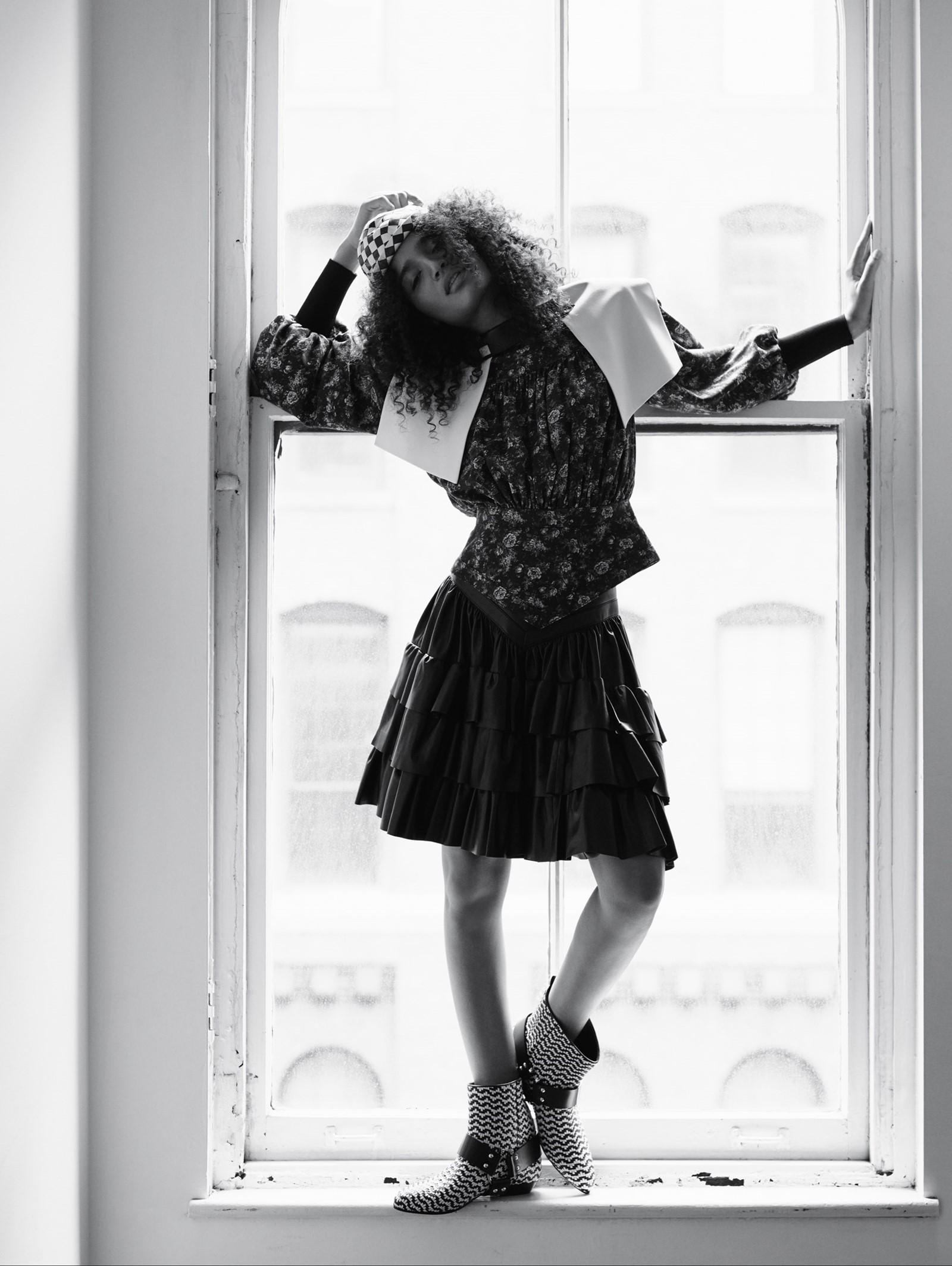
Pose could hardly have come at a better time. Madonna famously – and controversially – catapulted voguing, the dance practiced at the balls, into pop consciousness back in 1990, but today, it’s the culture’s slang that is mainstream, thanks largely to the Emmy Award-winning reality-TV behemoth that is RuPaul’s Drag Race. But while ‘shade’, ‘slay’, ‘werk’ and ‘yass’ have been appropriated into the straight, white lexicon (and quickly found their way onto fast-fashion slogan T-shirts), America debates banning trans people from public bathrooms and actively prohibits them from serving in its armed forces, while the British media regularly gives column inches to hateful pundits seeking to dehumanise anyone who exists beyond the gender binary. Trans people remain, as Moore puts it, those “whose very existence is politicised, is up for debate”.
“I think the thing that destroyed our world was apathy, from colonialism to war. Empathy is what’s going to save it” – Indya Moore
In this way, Pose offers a counterpoint to the hate-and-fear-fuelled rhetoric, and acts as a vital vehicle for representation. “Pose is revolutionary because it’s giving people an insight [into the] experiences of people they’ve never met before, right on their living-room screens,” Moore says. “When you see yourself in someone who is not you, you see your experience being represented in a body that is not yours, that looks nothing like you, that is what stimulates empathy. You’re able to empathise with an experience you may not have had any proximity to... People seeing us in the same spaces that they see themselves in ‘un-others’ us.”
When the black feminist academic bell hooks saw Paris Is Burning, she wrote that the “yuppie-looking, straight-acting, pushy, predominantly white folks” in the audience found the film funny – despite its themes of homelessness, abuse and murder. And yes, in Pose there are laugh-out-loud drags by Evangelista’s rival house mother Elektra Abundance (Dominique Jackson) and ball emcee Pray Tell (Billy Porter). Yet it feels impossible for a viewer not to be moved by Pose’s scenes of family rejection, heartbreak, or its depiction of the consequences of the Aids crisis, with doctors delivering bad news and lovers saying their final goodbyes. For some, Pose may be the first time viewers have ever identified with a trans character – this, as Moore explains, is not just important, but useful. “We need people to care about us. No one’s ever going to care about us if the only things they know about trans people are [from] Maury and Jerry Springer, if the only thing people know about trans people is fear... I think the thing that destroyed our world was apathy, from colonialism to war. Empathy is what’s going to save it.”
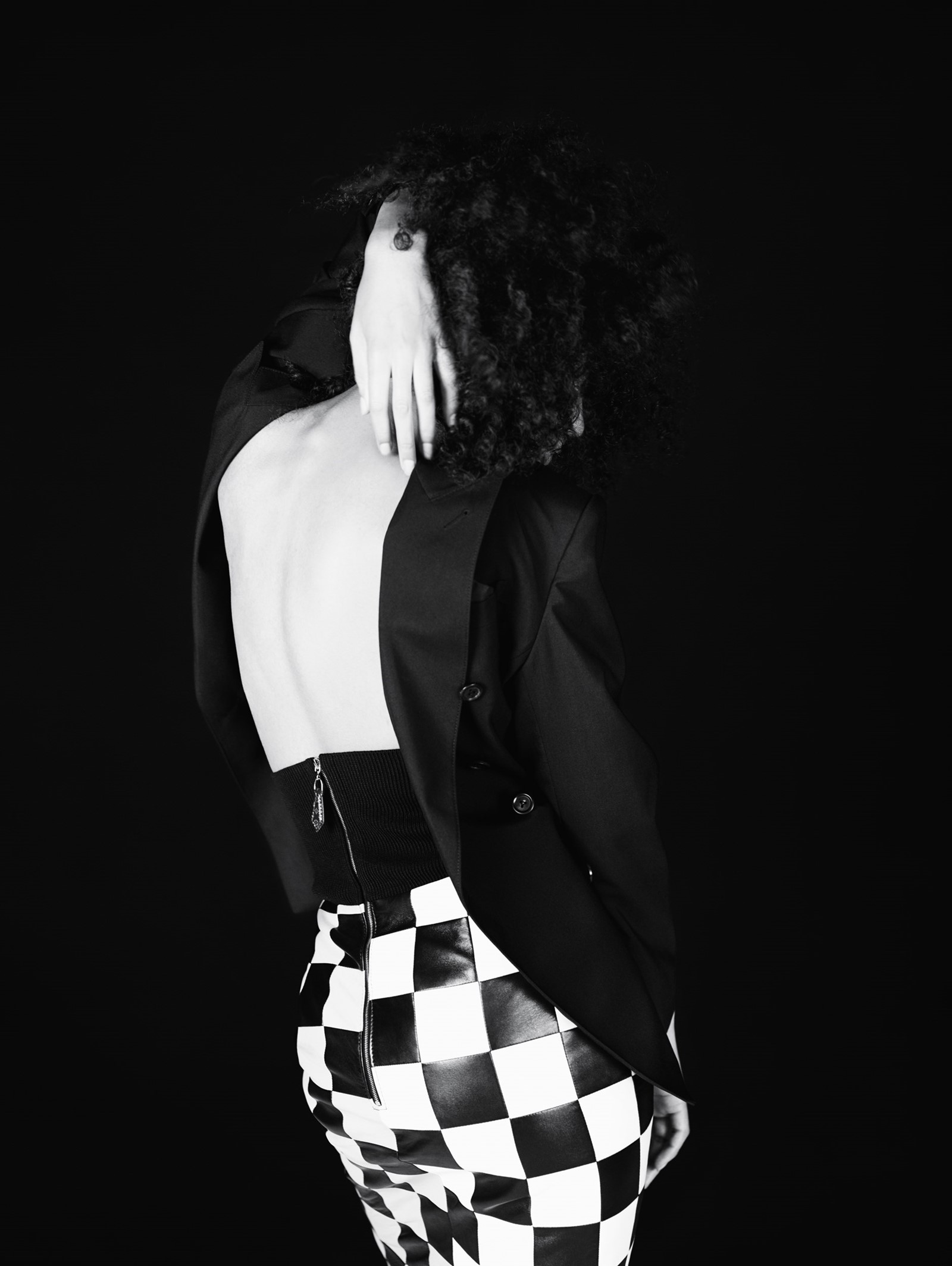
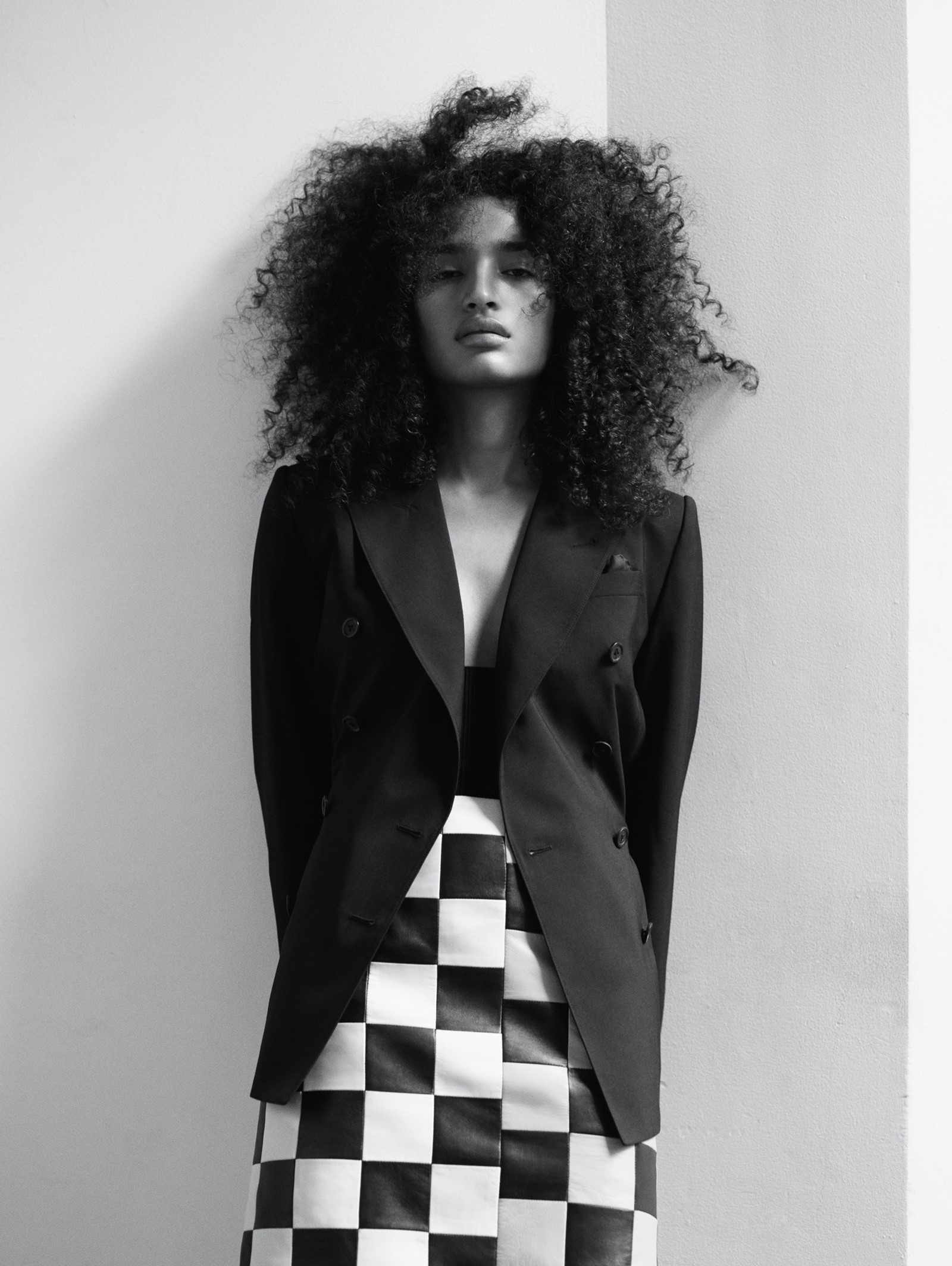
The representation Pose brings has also been evidenced in the world of fashion, an industry that has, over the past few years, been expanding its idea of beauty to include trans and non-binary people. A brand ambassador for Louis Vuitton – appearing in a lookbook, jewellery advertising, and on the red carpet in designer Nicolas Ghesquière’s creations – Moore took their first trip to Europe this year, travelling to see the house’s Autumn/Winter 2019 show in Paris.
“Choosing to be vulnerable while being aware that your vulnerability can be exploited is a strength” – Indya
Typically for Moore, who might pause for whole minutes at a time before answering a question, and whose thoughts never seem to linger on the surface, it brought up reflections on systemic and structural inequalities – from the politics of travelling first class to how Paris is a wealthy, beautiful city, while Haiti, a former colony (and place, along with Puerto Rico and the Dominican Republic, from which Moore descends) remains poor. “I’ve always been very curious about Europe and what the culture there is, especially pertaining to marginalised people in the context of white supremacy,” they explain. “Going to France, I was just thinking about French colonialism. I’m thinking about where it started, who is responsible for it. It triggered so much of this contemplation for me.” Case in point: after the fire at Notre Dame raised more than $1bn for repairs, an Instagram caption on Moore’s account questioned French president Emmanuel Macron on Haiti’s comparable absence of reparations from France.
To Moore, there’s strength in opening up. “I hope that there isn’t a bracket on what I’m able to be vulnerable about,” they say. “It’s not fair for people to expect me not to share the very real contemplations that I have about my experiences as a marginalised person, belonging to the history that I do... Being able to share your most intimate truths is a strength, knowing the risk that comes with being vulnerable. The risk of being judged, the risk of being exploited. Choosing to be vulnerable while being aware that your vulnerability can be exploited is a strength.”
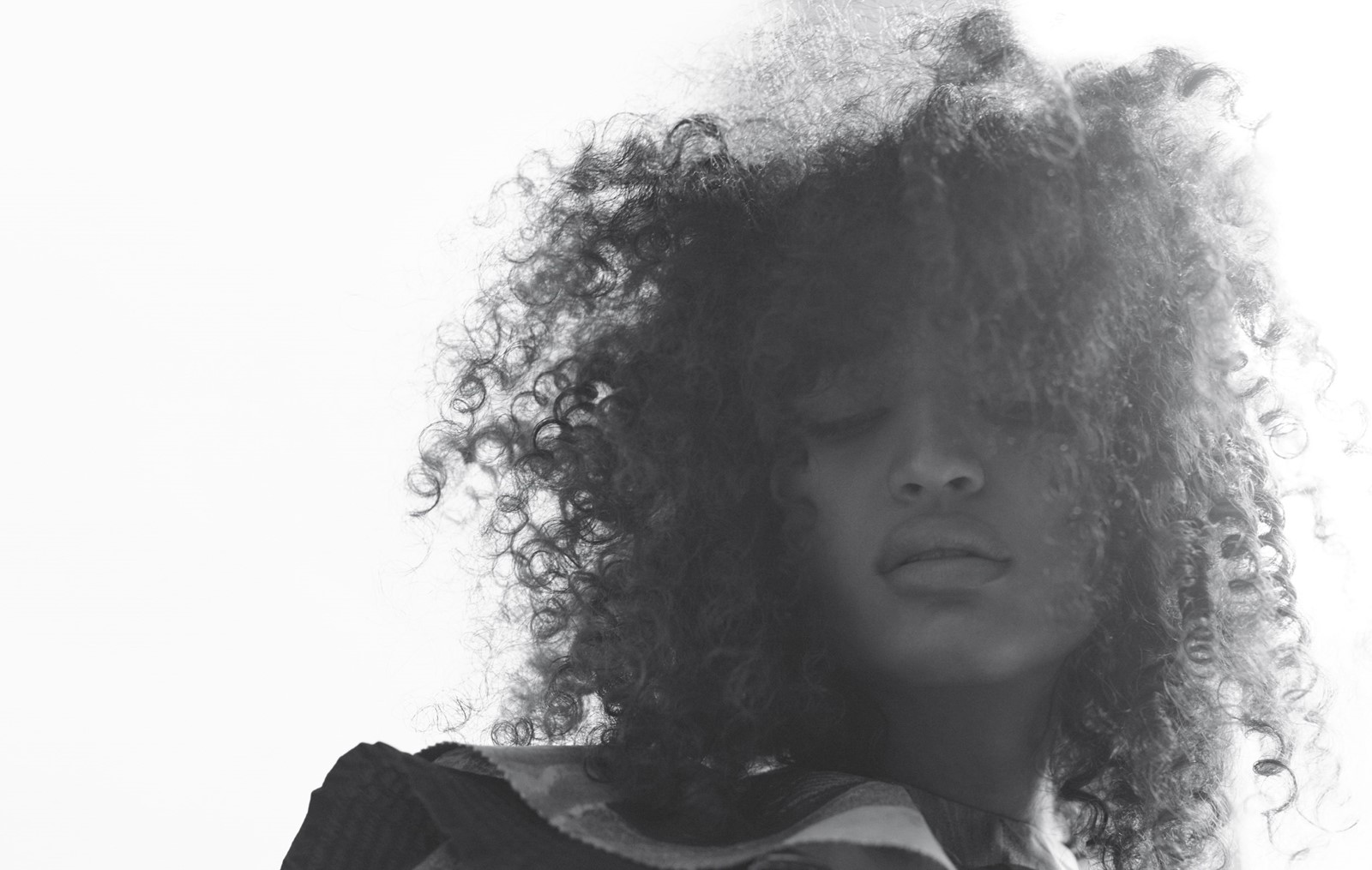
Moore is still getting to grips with the idea of being a celebrity – “It’s a tough place to be and maintain who you are without being controlled by all the powers that be who want to use you to sell” – but with a social-media presence that is regularly dedicated to discussing issues such as colourism, colonialism and the violence and discrimination faced by their community, it’s simply not a choice to smile, be quiet and take the cheque, even if some brands might see working with them as too much of a risk. “Even authenticity is this thing that’s being sold,” Moore says. “Then if you’re too authentic it’s like, ‘Whoa, hold on, we weren’t looking for that truth.’”
“Anybody that has fears around my inclusion because of my advocacy – I don’t want to represent their brand” – Indya Moore
“I often assume that, ‘All right, [brands that choose to work with me] know what I’m about, they know I’m going to come up in here, I’m going to ask questions. I am going to share and communicate and challenge in ways that are politicised.’ Oftentimes, that kind of exchange and that kind of sharing makes powerful institutions very uncomfortable, because there’s an anxiety around, ‘Are we a part of that? Are we participating in some of the issues that this person cares about?’ Everyone fears accountability to some degree.” The fact is, though, Moore continues, “Anyone that feels uncomfortable with my advocacy and the reality of this world that marginalised people don’t have the luxury of dodging and hiding from, anybody that has fears around my inclusion because of my advocacy – I don’t want to represent their brand.”
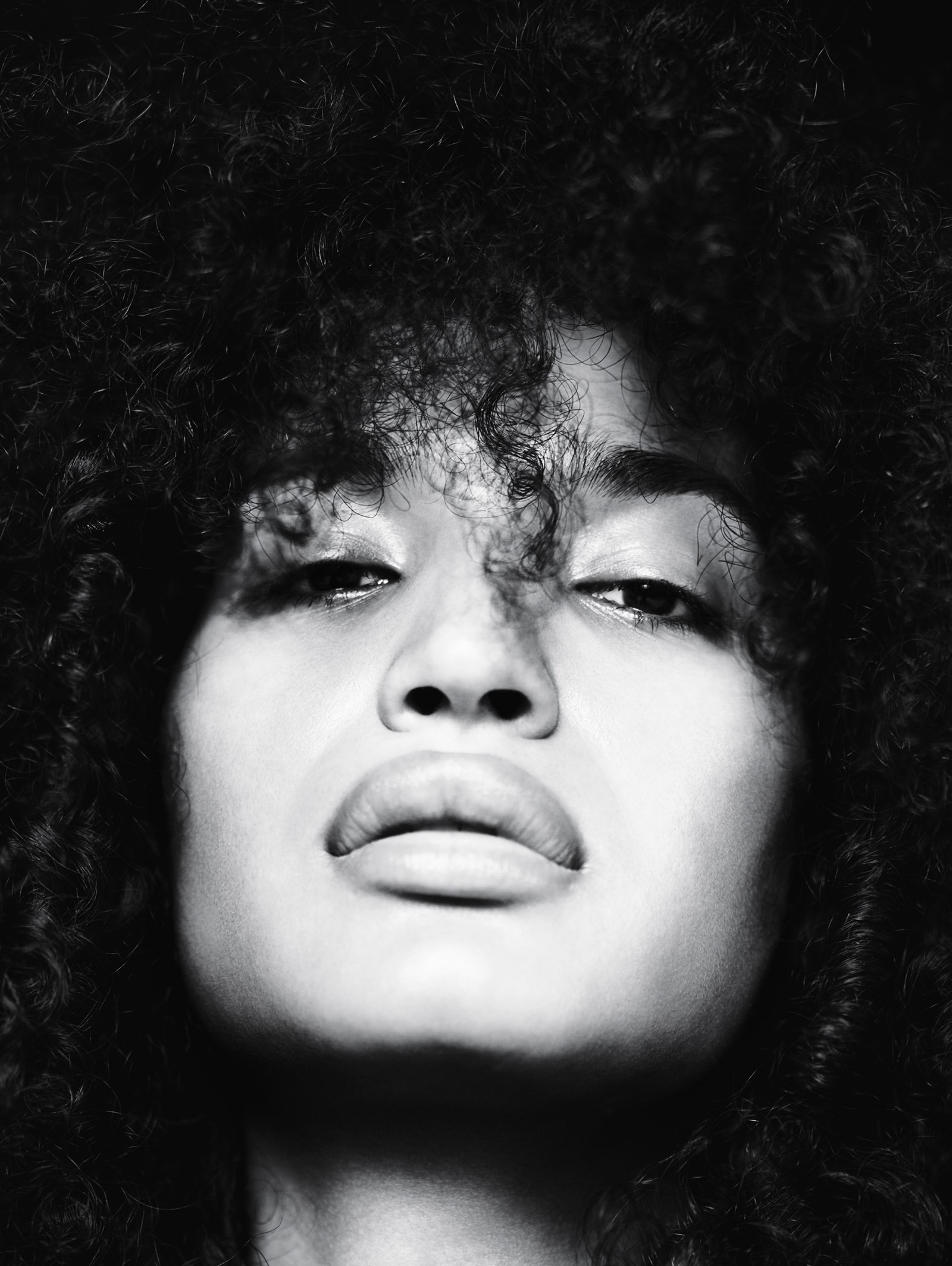
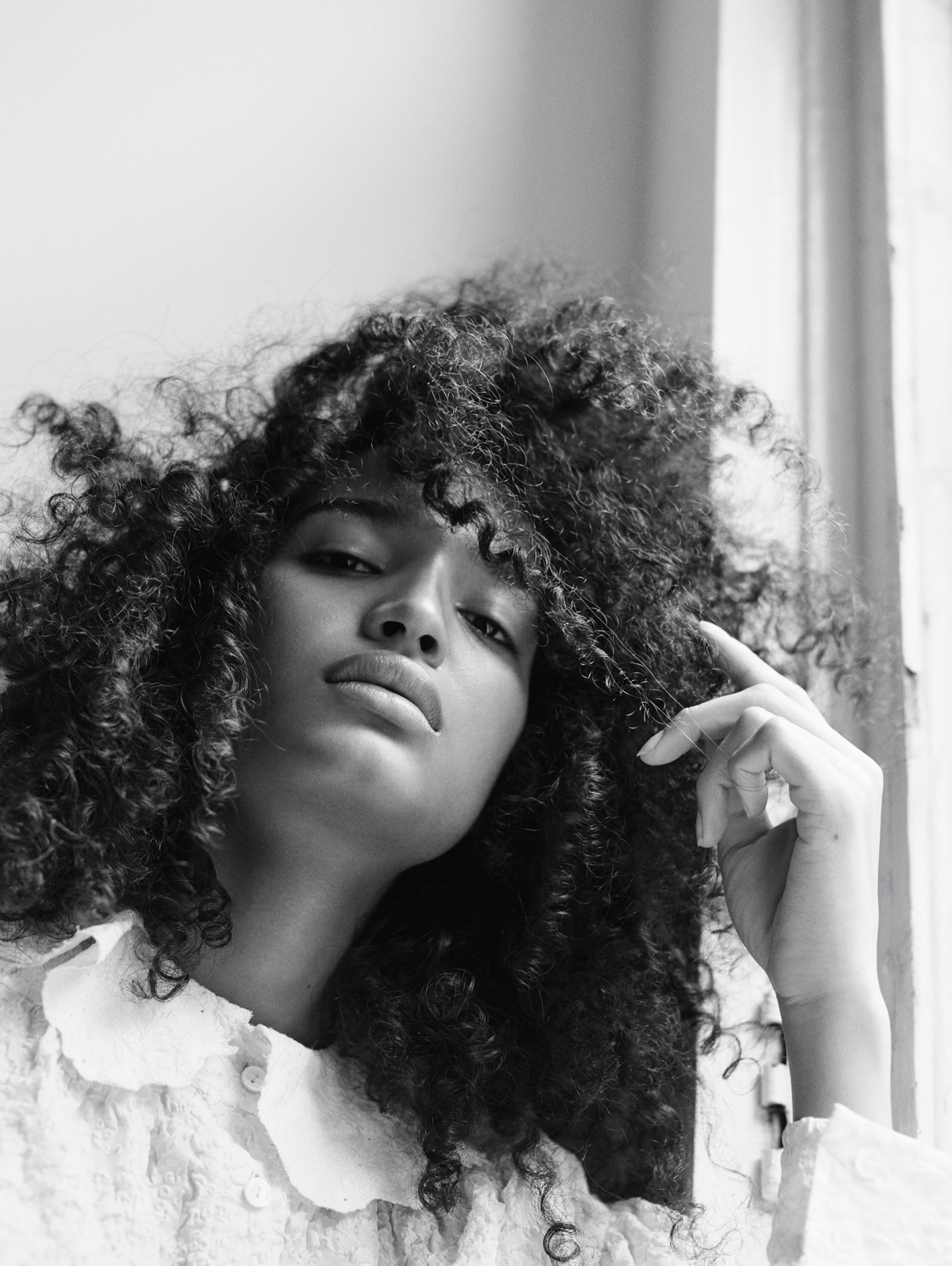
Moore’s integrity is undeniable, but it’s clear they feel a responsibility to their community – fame doesn’t mean you can leave people behind to ascend into the shimmering world of celebrity, it means you have a greater responsibility to be vocal, to advocate for those without the platform you have. As for what they’d tell trans youth, those kids facing the same adversity they were up against, knowledge, for Moore, is power. “Information provides autonomy when we have none. Investigate your reasoning behind the things that harm you the most, so that it hurts less – we’re able to protect ourselves more when we know who’s causing the pain or where it’s coming from. For me, information freed me and protected me, helped me understand myself. Questioning things, believing in something more, depending on myself to survive.”
“And every single person that is born, every single person that exists on this planet, has a responsibility to affect and influence anyone that they come to be in proximity to” – Indya Moore
They admit it’s not as simple or straightforward as ‘Everything is going to be OK’ – “I think what I needed to know is a lot more complicated, and is a collage of things,” they explain, before beginning an effortlessly spoken manifesto the world at large would do well to adopt. “Community is important. Stay dedicated to the truth. Be dedicated to history. And every single person that is born, every single person that exists on this planet, has a responsibility to affect and influence anyone that they come to be in proximity to. Everyone matters. Everything matters. Don’t let anyone take your joy. We can find joy anywhere and in anything. Make sure that you experience joy in ways that don’t harm us, and that we hold onto joy, no matter what.”
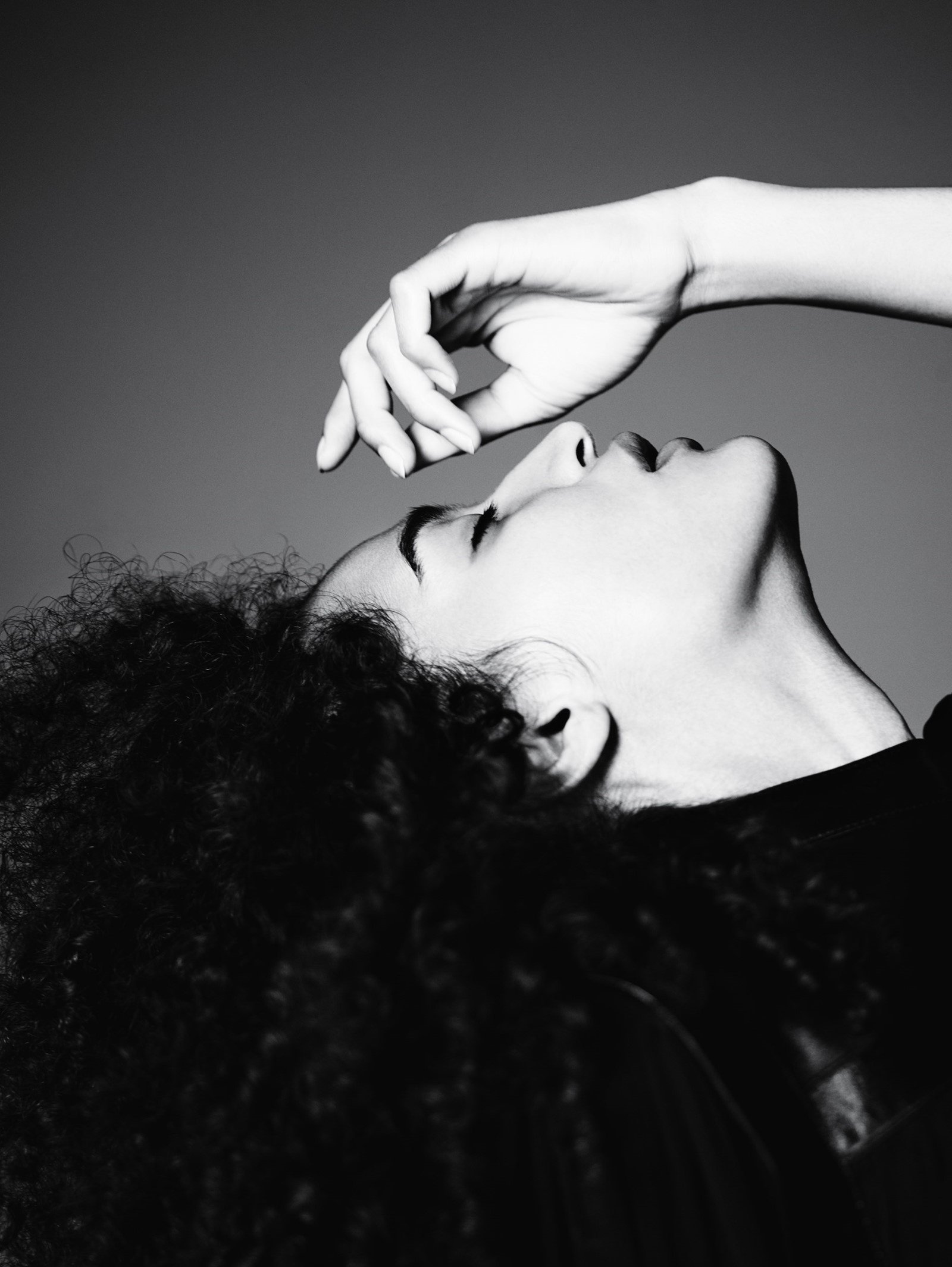
All clothing and accessories from the Louis Vuitton Autumn/Winter 2019 collection
Hair: Hos Hounkpatin at The Wall Group. Make-up: Kanako Takase at Streeters using Dior. Manicure: Kana Kishita at Susan Price. Digital tech: Henri Coutant. Lighting: Romain Dubus. Photographic assistant: Will Takahashi. Styling assistants: Niccolo Torelli, Jose Miguel Dao and Helen Franco. Make-up assistant: Maggie Mondale. Executive producer: Simon Malivindi. Production: One Thirty-Eight Productions. Production assistants: Eleonora Trullo and Auguste Taylor-Young. Post-production: Triplelutz
This story originally featured in the Autumn/Winter 2019 issue of AnOther Magazine, which is on sale internationally from 12 September 2019.
Pose series 2 starts on October 26 on BBC Two and BBC iPlayer.
